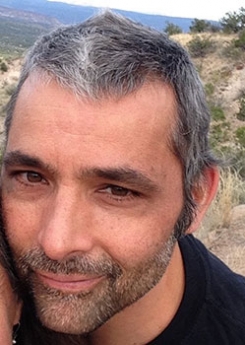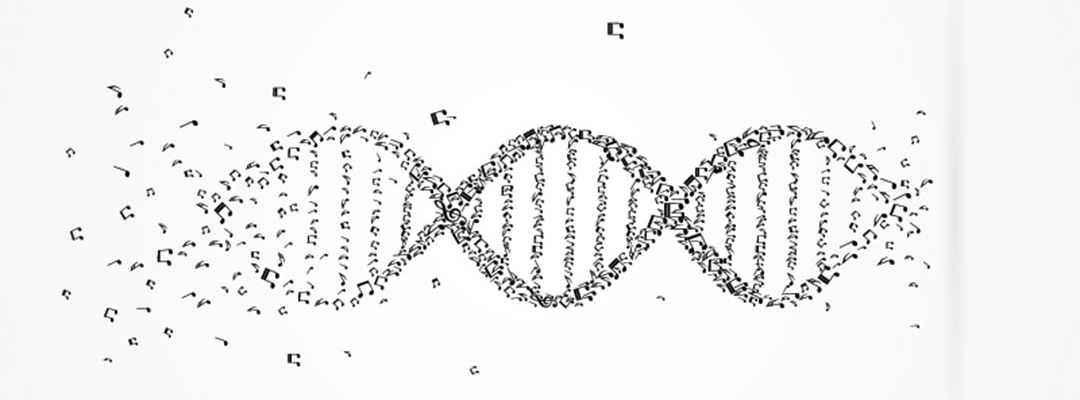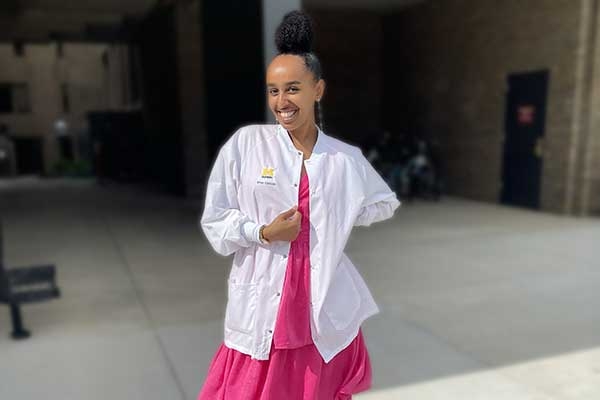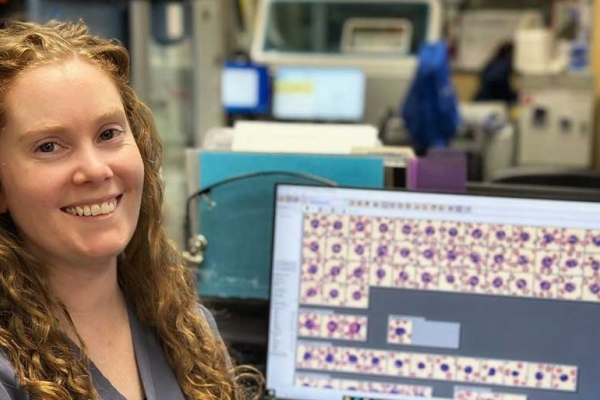At its base, music is a result of mathematical principles and logic. It's a set of formulas and theories to produce a set of notes that invoke, inspire and imagine. The same holds true for science: There is music in how cells interact with each other, in how nature continues to transform and adapt to environmental shifts, in the dance of DNA.

So it should come as no surprise that when longtime Minneapolis-based music teacher Pete Hofmann began to imagine what a second career could look like, he expanded his concept of beauty from just music to the natural world around him. "Just one of the many things I love about teaching music is helping individuals understand the mind-body-spirit connection of music," he says. "I have had a lifelong interest in the natural world and could very well have chosen a career in the sciences. I am absolutely fascinated by how cells work! My fascination only intensifies the more I read into it and the more courses I take."
One of those thought-provoking courses has been with UC Berkeley Extension, taking advantage of the online format so that he can continue teaching music in Minneapolis. Taking one course at a time during the past seven years—including general chemistry, organic chemistry, biochemistry and genetics—Hofmann is working his way toward a bioscience degree. He began his science studies with courses offered at the University of Minnesota. UC Berkeley Extension popped up on his radar when he was trying to take an online cell biology course through the University of Minneapolis: For at least three semesters, that course filled up before Hofmann could reserve his spot. He sought out UC Berkeley Extension because of its good reputation, accreditation, affordability and—more important—because the course was available there. Hofmann says he will keep Extension in his back pocket as a resource for any future courses he may take because of the overall positive experience he’s had.
Silencing the Noise
As a full-time music teacher who "navigates hundreds of interactions with individuals, small and large groups every day," the last thing Hofmann needs is to sit in yet another classroom. "I like the quiet, self-pacing feature that many online courses possess," Hofmann adds. "I especially like that I can think about what someone wrote for a long time and then respond later. Whereas in a face-to-face setting, the expected response time is shorter."
Though Hofmann could be thousands of miles away from his nearest classmate, having conversations and discussions with those in his class take on a face-to-face feeling—just like a standard classroom. "Though I suspect that some people who 'shine' online may be very quiet in the face-to-face setting and that some people who feed off of real-time personal interaction may find the online environment challenging. If you have self-discipline, time and ability to organize, then online courses can play a vital role in your education."
I love how when I learn about some aspect of cellular function, I always seem to have even more questions.
Answers Beget More Questions
Hofmann's thirst for knowledge knows no bounds. The more he digs into cells and their functions, the more fascinated he becomes with the field. And with each new discovery comes new questions—all fueling his preparation to transition into the sciences. Fortunately, instructors such as Nidhi Ahuja are attentive to his queries, consistently responding to his questions and needs.
"I am truly awe-inspired by creation and feel a strong need to understand as much as I can about genetics, cells, communication and expression," Hofmann explains. "I love how when I learn about some aspect of cellular function, I always seem to have even more questions. I love to imagine ways to observe and measure processes that go on in the body. I am interested in how thoughts trigger certain physiological responses. I wonder about how mutations in DNA may change cellular communication. I am curious about how disruptors come into being and wonder if there is a way to predict how likely it may be that some substance could become a disruptor.
"The topic of cell communication became even more salient to me when I was diagnosed with lymphoma in 2015," he continues. "I am in remission now, and a central part of my emotional and mental recovery has been the study of cells in general and cell communication specifically."
Onward and Upward
Although Hofmann has plans to continue teaching music for the next five years, he's built a strong foundation upon which to begin a new life in the sciences. He's working toward a bioscience degree—either conferred from University of Minnesota or UC Berkeley—and then it gets a little fuzzy. "The where and how of getting into the sciences is still unknown," he says. "I'm interested in supporting research. The University of Minnesota has a lot of great researching happening and it's all just a bike ride from my home. I might find work in medical device manufacturing, research and quality control. There are a number of big companies here, such as Medtronic."
But for right now, he's tackling his required science courses one at a time, knowing that his love for music and for science are spurring on his creativity to imagine a healthier tomorrow.



